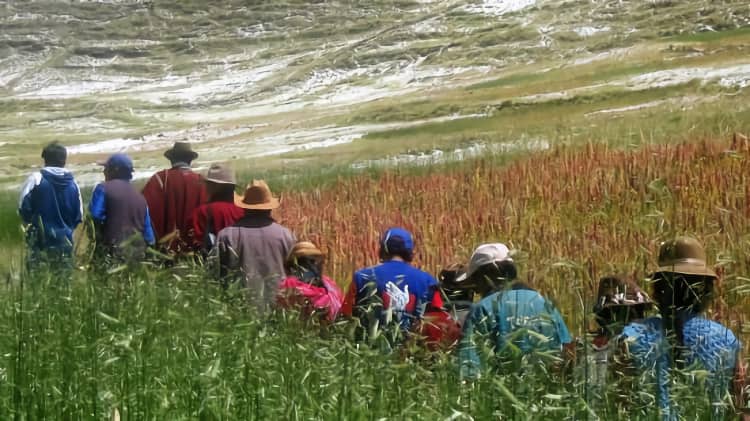The Diplomat
Through the Spanish Agency for International Development Cooperation (AECID), Spanish Cooperation works to protect and promote the effective exercise of the rights of indigenous peoples in Latin America and the Caribbean, where they represent 8.5 per cent of the population and 14 per cent of people living in poverty.
Through the Indigenous Programme, AECID works specifically to promote their full political, economic and social participation and to value and recognise their irreplaceable contributions to sustainable development in the region.
Since 2007, Spain has had a differentiated strategy – the Spanish Strategy for Cooperation with Indigenous Peoples (ECEPI), developed with the initiative and participation of representatives of indigenous peoples – to support the self-development of indigenous peoples in Latin America and the Caribbean, which takes into account not only the socio-economic conditions faced by indigenous people because they are indigenous, but also the cultural identities, world views and social organizations of these peoples, as well as their efforts to preserve and recognize their ancestral lands.
The special ways in which these peoples relate to the environment give them a leading role in the defence of biodiversity and environmental protection. However, the existing inequality gaps mean that they are often socially and economically vulnerable groups and that they often swell the flows of displaced persons and refugees.
For this reason, AECID explains in a press release that it finances dozens of development projects and supports different types of initiatives in most Latin American countries, with indigenous organisations, regional networks, civil society organisations and human rights defenders, national and local public institutions and international bodies, which are carried out each year to respond to the demands of indigenous organisations and representatives in their work to advance their rights.
One of the priorities of the Indigenous Programme is the struggle for the rights of indigenous women, who often face multiple discrimination and are disproportionately affected by the dynamics of exclusion. For this reason, AECID works to strengthen the fabric of associations and to promote the social leadership of indigenous women in order to increase their capacity for political advocacy as a way of advancing towards real equality of rights. In addition, the Agency’s Indigenous Programme supports the fight against all types of gender, sexual, political and social violence, etc., and promotes the economic emancipation of indigenous women.
Sustained support for indigenous rights
In addition, Spanish Cooperation’s work for the rights of indigenous peoples also extends to political and economic support for regional initiatives such as the Fund for the Development of the Indigenous Peoples of Latin America and the Caribbean (FILAC), an international organisation with a parity structure (made up of representatives of both governments and indigenous peoples) that Spain has supported since its creation in 1992, and with which it works closely to achieve progress at the political and institutional levels, strengthening the visibility, knowledge, claims and demands of indigenous peoples on the international scene; but also carries out important work in education and training, consultation and organisation of the indigenous movement in Latin America and the Caribbean, along with other actions of direct support to indigenous organisations and initiatives in the region.
In July of this year, FILAC commemorated its 30 years of work in Madrid – the city where it was born, within the framework of the II Ibero-American Summit of Heads of State and Government – where it held its XVI Extraordinary General Assembly, hosted by Spain, which also holds the second vice-presidency of the organisation’s Board of Directors. At the Assembly, governments and indigenous peoples of Latin America and the Caribbean, with the support of Spanish Cooperation and the participation of the Ibero-American General Secretariat (SEGIB), agreed to further the strategic objectives of the Ibero-American Plan of Action for the Implementation of the Rights of Indigenous Peoples with the aim of accelerating the construction of intercultural and inclusive societies that leave no one behind.






